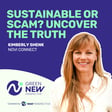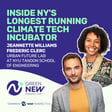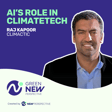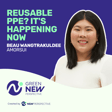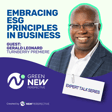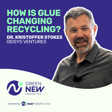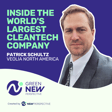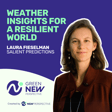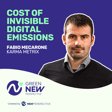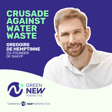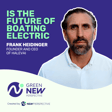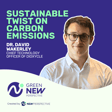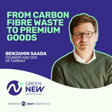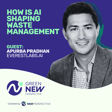
Waste Not: The Textile Recycling Revolution
For this episode of the Green New Perspective podcast we’re thrilled to welcome Nora Eslander, Head of Communications and PR of Renewcell. Renewcell is a Swedish company dedicated to promoting sustainability and circularity in the fashion industry. Its innovative technology recycles textiles into a high-quality dissolving pulp called circulose that’s used to make more textiles. This is a huge step forward towards true sustainability in fashion. We talked to Nora about the challenge of implementing sustainable goals in fashion, the need to reduce waste and minimize the industry's environmental impact, and how Renewcell’s technology is helping to transform how we produce and consume clothing.
🌍 SUSTAINABILITY PODCAST CREATED BY NEW PERSPECTIVE
========================
This podcast is proudly sponsored by New Perspective Marketing, a dynamic growth marketing agency in Boston, MA, celebrating 20 years in business. We help sustainably focused B2B organizations grow their brands and scale up revenue. If you or your organization is looking to grow, visit npws.com for more info.
🎧 SUBSCRIBE TO OUR PODCAST
===========================
- Spotify: https://bit.ly/3PSWIyI
- Apple Podcasts: https://bit.ly/3RvlHte
- Youtube: https://bit.ly/3RDzkXg
- Google Podcasts: http://bit.ly/465gjS5
- Deezer: https://bit.ly/3PvQaof
- Amazon Music: https://bit.ly/3PQlijS
- Zencastr: https://bit.ly/48xt75s
💬 FOLLOW US ON SOCIAL MEDIA
============================
- Instagram: https://www.instagram.com/greennewperspective/
- Twitter: https://twitter.com/gnperspective
- Facebook: https://www.facebook.com/greennewperspective
- LinkedIn: https://www.linkedin.com/showcase/greennewperspective/
- TikTok: https://www.tiktok.com/@greennewperspective
- Threads: https://www.threads.net/@greennewperspective
#sustainabilitypodcast #cleanenergy #greennewperspective #sustainability #cleanenergy #podcast #cleantech
